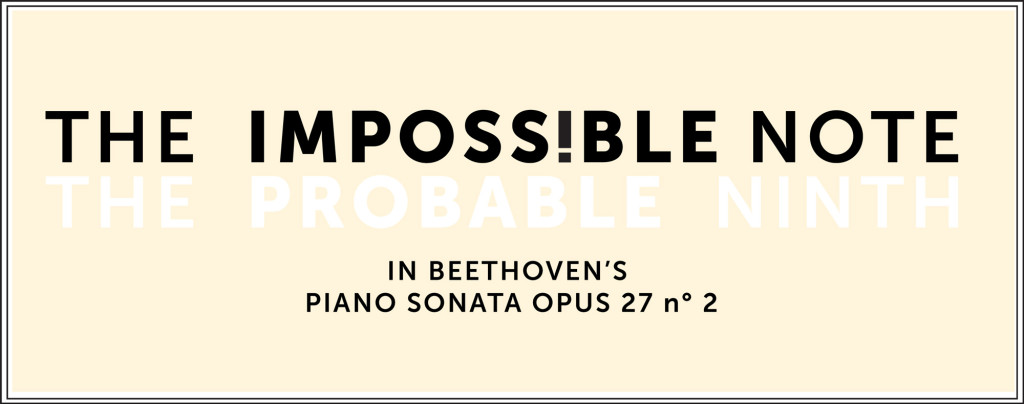
The impossible note in Beethoven’s opus 27 no.2
INTRODUCTION
Beethoven’s Piano Sonata Opus 27 no. 2 or Sonata quasi una Fantasia is dedicated to Countess Giulietta Guicciardi. Also known as the ‘Mondschein’ (or Moonlight) Sonata, it has captivated generations of musicians and poets alike. With a history of over two hundred years its fame has reached dazzling levels, but the many stories, real and imagined, have also obscured the meaning of the composition and covered much of it with a thick layer of false tradition. All if not more than enough has been said, one would assume.
And yet, through a strange concurrence of circumstances, the notes of Beethoven’s sonata number fourteen have come to haunt us again. As with all those works which have risen to mythical status, we continue to be fascinated by their impact, positive or negative, and their far-reaching power. Sometimes, stories and myths need to be left to what they have grown to be. In other cases, the musical implications are such that one imperatively needs to address the issue.
ARTICLE by Birgitta Arts and Sietse Kok
![]()

“…überall hat auch der Verf., so weit so Etwas mit konventionellen Zeichen ausgesagt werden kann, den Vortrag, und auch die Handhabung des Eigenen und Vorzüglichen des Pianoforte hinzugesezt …”
“…and the composer has, as far as something like this can even be expressed through conventional notation, added details all over as to execution and how to bring forth the characteristic and most exquisite aspects of the pianoforte …”
Excerpt from the review in the AMZ, June 30, 1802.
![]()

